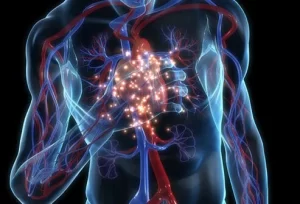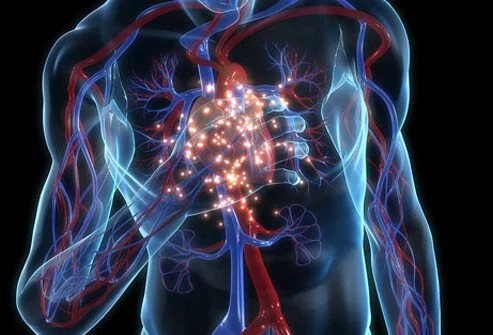Cannabis and heart diseases:
Cannabis has been legal for medicinal use in Canada since 2001. Since 2018, many cannabis products are legal for recreational use, including dried cannabis, fresh cannabis, cannabis oil and cannabis seeds for cultivation. In 2019, cannabis edibles, topicals and extracts (including cannabis vape products) became legal.
![]()
⦁ There is currently little high-quality scientific evidence about the impact of recreational cannabis use on heart conditions and stroke.
⦁ Emerging evidence shows an increased risk for heart condition and stroke from the consequences of cannabis on vital sign , inflammation of the blood vessels and cardiac arrhythmias.
⦁ Other reports link cannabis use with cardiovascular emergencies, including attack , arrhythmias, coronary failure , stroke and cardiac arrest(cardiopulmonary arrest).
⦁ Some research shows that long-term or excessive use of cannabis, increases the danger for heart condition and stroke.
⦁ Respiratory illness and deaths within the us are linked to vape products, many of which are cannabis (THC) vaping products obtained through informal sources.
Heart & Stroke recommends reviewing the Lower-Risk Cannabis User Guidelines to assess the safest modes of cannabis use. Consumers should follow guidance and advisories from Health Canada associated with vape products and if vaping cannabis, always obtain THC extracts for vaping from authorized dealers.
Educating Patients:
“The cardiovascular community features a great distance to travel in terms of screening for marijuana use. Especially for young individuals who present with heart attacks or stroke without traditional risk factors,” says DeFilippis. Thus, she notes it’s critical that cardiology professionals ask patients about their use of marijuana and educate them on the potential cardiovascular effects. Read more about marijuana here.
That can be challenging, says Vogel, who, as someone who practices within the Delaware to legalize recreational marijuana, well knows. Like alcohol and supplements, he says, patients are often loath to inform physicians about their use of cannabis, even in Colorado where such use is legal.
Educate with a private approach, agrees DeFilippis. “Say, ‘I’m worried about your heart because we already know you’re in danger for heart condition due to your high vital sign or cholesterol.’ Then tell them that so as to urge the foremost comprehensive view possible. You would like to understand if they use cannabis and the way they use it.”
Marijuana’s Potency Today Is Higher:
The potency of marijuana—the percentage of THC contained within the plant—has steadily increased over the past 30 years, from about 4% within the mid-1990s to 12% in 2014. However, most scientific studies of cannabis tested products with THC levels between 1.5% and 4% for Cannabis and heart diseases.
“Higher potency may translate into greater effects on the conduction system, the vasculature, and therefore the muscle of the guts ,” DeFilippis says. “It also highlights the necessity for real-world data given the variability of marijuana products and formulations available for purchase.”
THC is that the most psychoactive chemical in marijuana, but marijuana also contains quite 100 compounds, called cannabinoids. Receptors for cannabinoids are highly concentrated within the system nervous but can also be found in blood cells.
Cannabinoids Can Interact with Drugs wont to Treat heart condition:
Cannabinoids inhibit certain enzymes within the body, which affects the metabolism of the many drugs for heart condition, including antiarrhythmics, statins, calcium-channel blockers, beta blockers, and warfarin.
Researchers believe that cannabinoids may increase the activity of those prescription drugs within the body. Though limited data are available to guide physicians in adjusting dose to catch up on marijuana use.
Marijuana could also be Linked to Heart Attacks and Strokes:
Studies have identified marijuana smoking as a possible trigger of heart attacks. Marijuana use isn’t infrequently detected in adults who have experienced heart attacks at an early age (under 50). A small experimental study found that smoking marijuana can cause angina more quickly in patients with coronary heart condition compared with smoking a placebo.
Though current evidence for a link between Cannabis and heart diseases are modest. It’s thought that smoking marijuana may increase cellular stress and inflammation. Those are known to be precipitating factors for arteria coronaria disease and heart attacks.
Cerebrovascular events, including strokes, even have been related to marijuana use. It’s thought that marijuana may induce changes within the inner lining of blood vessels or alter blood flow.
